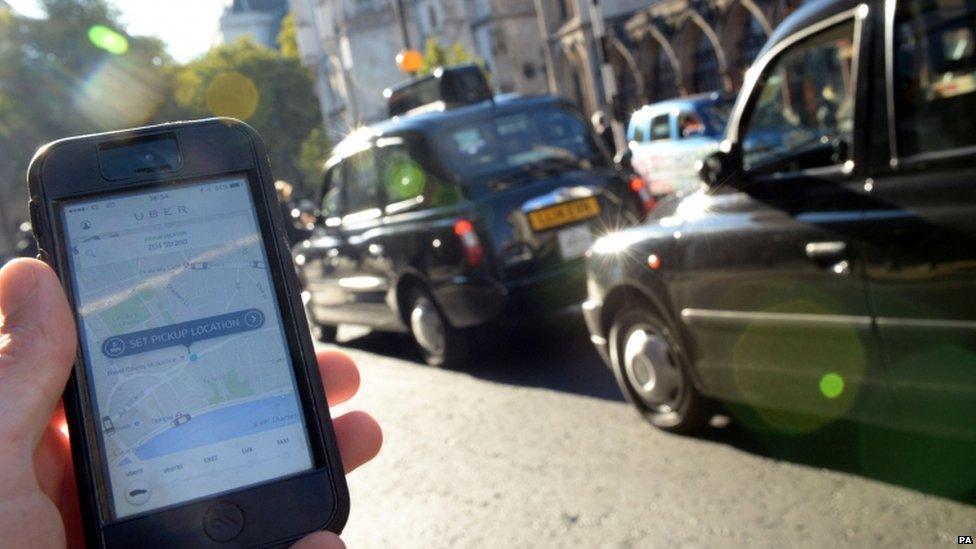Northern Ireland down more than 4,000 taxis in five years
- Published
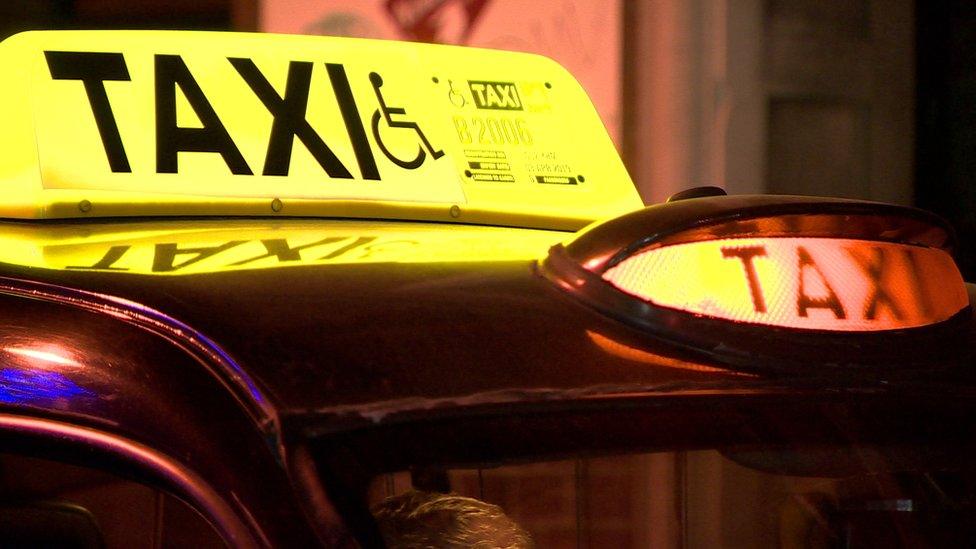
Tougher tests are said to be partly to blame for the lack of qualified taxi drivers
The number of registered taxis in Northern Ireland has dropped by 27% in the last five years.
There are now 4,100 fewer than there were in 2013.
The introduction of tougher taxi driver theory and practical tests in 2014 is being blamed for blocking new drivers from joining the industry.
A spokesperson for the Department for Infrastructure said the new tests are aimed at improving safety but admitted pass rates are only between 20%-25%.
In 2013, there were 15,430 taxi licences issued in Northern Ireland.
That number has continuously dropped to reach 11,328 in 2018.
The figures cover legally-registered drivers, including those who drive for online-based companies like Uber.
It means Christmas party goers increasingly have to battle to get home at the end of the night.
'Stranded'
Enjoying the festivities in Belfast this week were friends Sarah, Katie, Abby, Cara and Ellen.
They are all students enjoying the Christmas break but difficulties in finding a taxi home "ruins the night," said Cara.
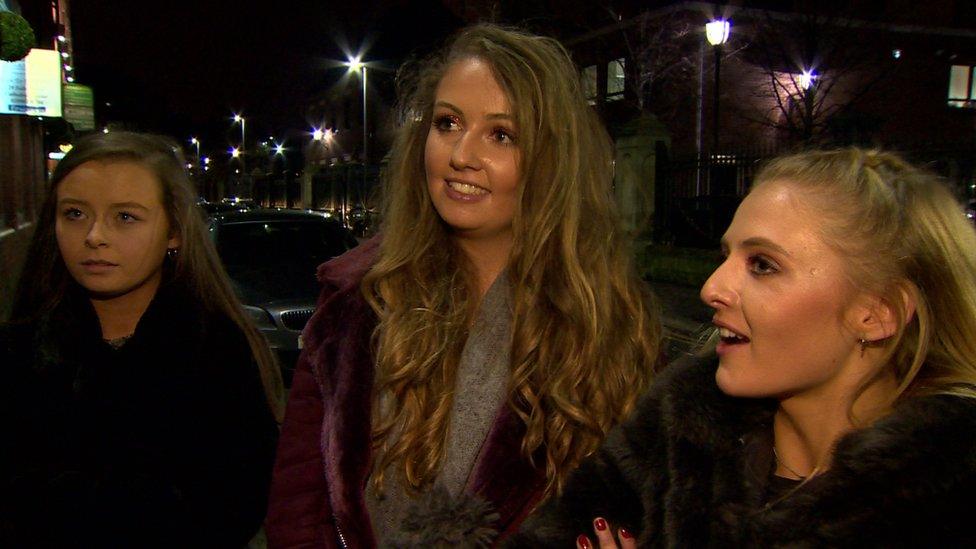
Abby, Cara and Ellen told BBC News NI about their difficulties finding taxis at night
"There's been times when it's been three o'clock in the morning and I've had to call my dad [to collect me]," Katie admits.
"I felt bad, but I genuinely felt stranded."
Sarah added: "I've had to walk 45 minutes before I could get a taxi.
"It's an absolute nightmare."
Ellen said she has had to wait in town for three hours in the middle of the night to find an available taxi.
Abby said: "Being a girl, you shouldn't feel vulnerable, but you do,"
'Very difficult'
William McCausland runs one of Northern Ireland's biggest taxi companies, Fonacab.
He said there are not enough younger drivers joining the industry to replace the older ones who are retiring.
"Quite a significant reason we see is the re-introduction of the driver theory and practical test, which was introduced with good intentions but unfortunately it was made very difficult," he said.
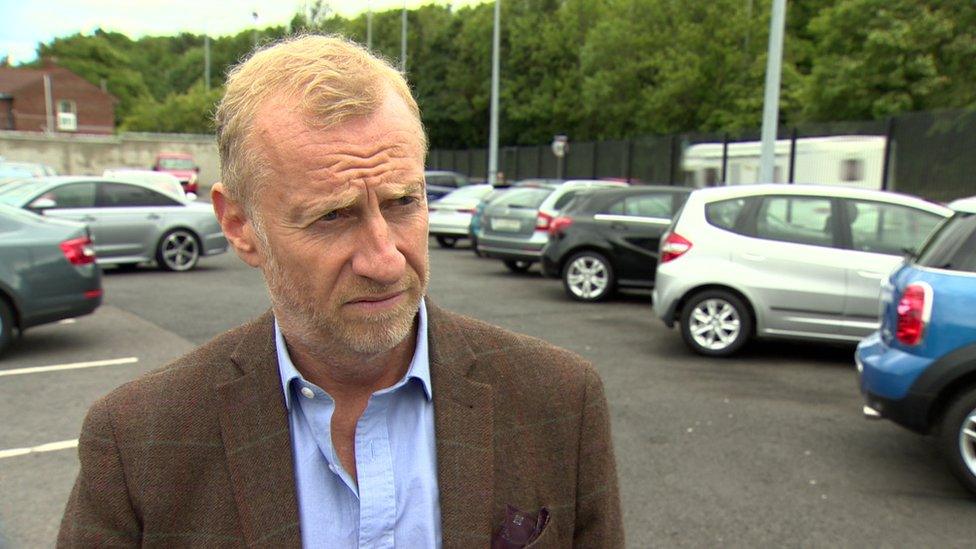
Fonacab's William McCausland said people with a third-level education have failed the new tests multiple times
He claimed many of the questions are "irrelevant", citing one that asked about the impact of air conditioning on fuel consumption.
"If it's hot outside you put the air-con on for the comfort of your passengers. I don't think it's relevant for the driver to know the impact on miles-per-gallon for that kind of stuff.
"I can think about a lot of things that a driver should know but none of those topics are touched on in the test."
'Prohibitive insurance'
Mr McCausland said the industry is having problems meeting demand.
"It's busy all the time. We have people with third-level education who have failed the test three or four times."
Dill Firth has been a black cab driver for many years in Belfast. He said the new test is only part of the problem.
"The cost of insurance is prohibitive," he said.
"Basically all the costs are quite high. It's become quite difficult to make a living."
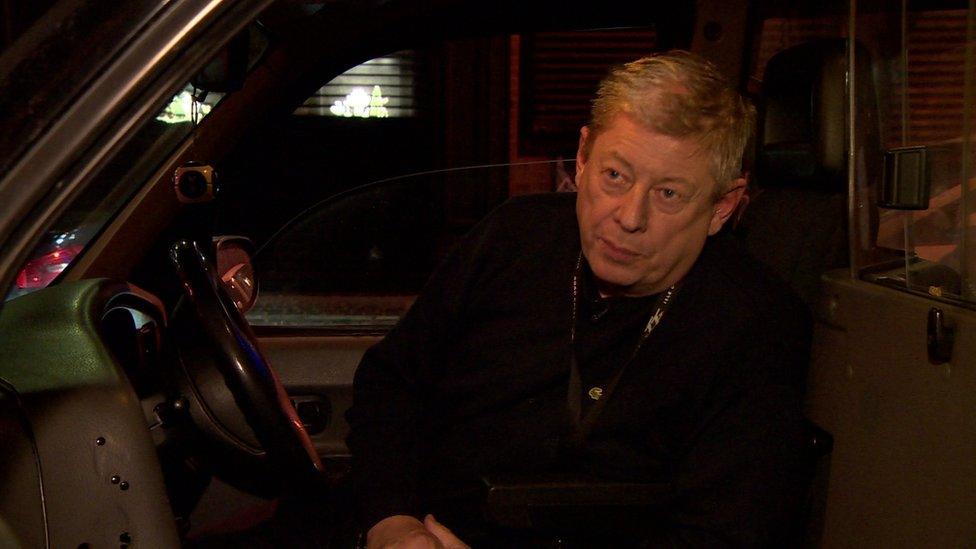
Taxi driver Dill Firth said insurance costs were also driving people out of the industry
A spokesperson for the Department for Infrastructure told the BBC: "There has been a decline in the number of licensed taxi drivers since figures have been published in 2013-14, before the taxi theory test was introduced.
"This decline has continued over the last four years and there is likely to be a number of factors contributing to this decline."
They added that the Taxi Driver Theory Test was reintroduced in October 2014 for all new drivers to the industry to "help improve standards in the industry, increase road safety, provide additional assurance to passengers and raise the reputation of the industry as a provider of a quality service".
On the 20% pass rate, the department said it was "reviewing all the training material to ensure that it is more easily understood and accessible".
- Published26 September 2016
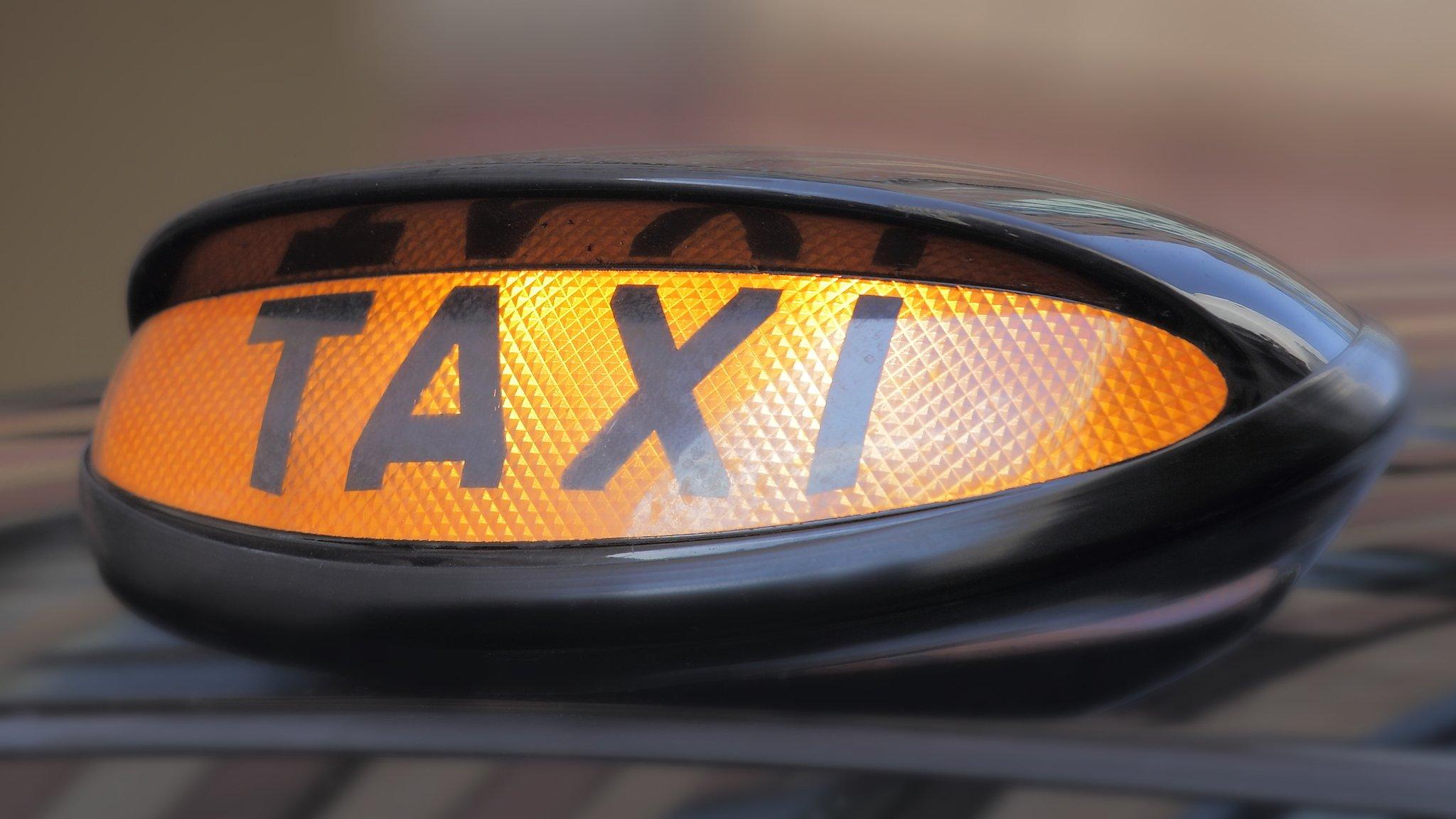
- Published5 August 2016
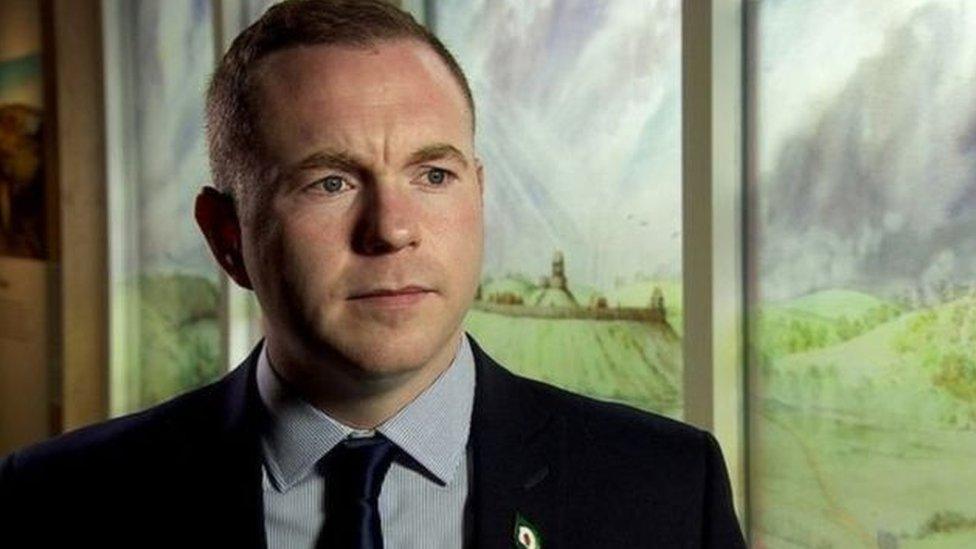
- Published4 December 2015
